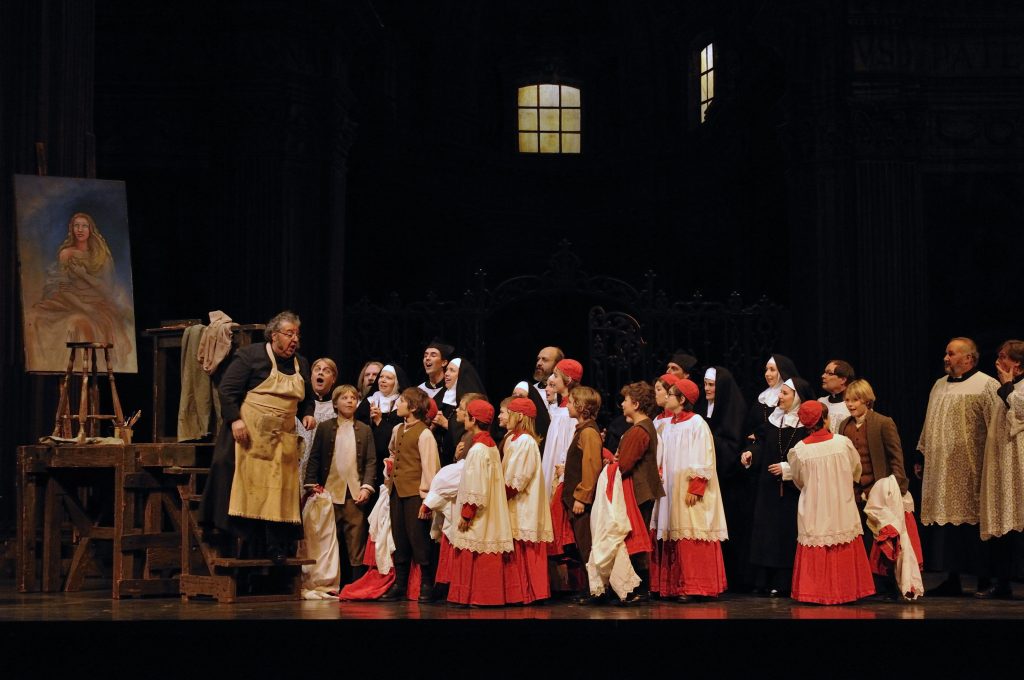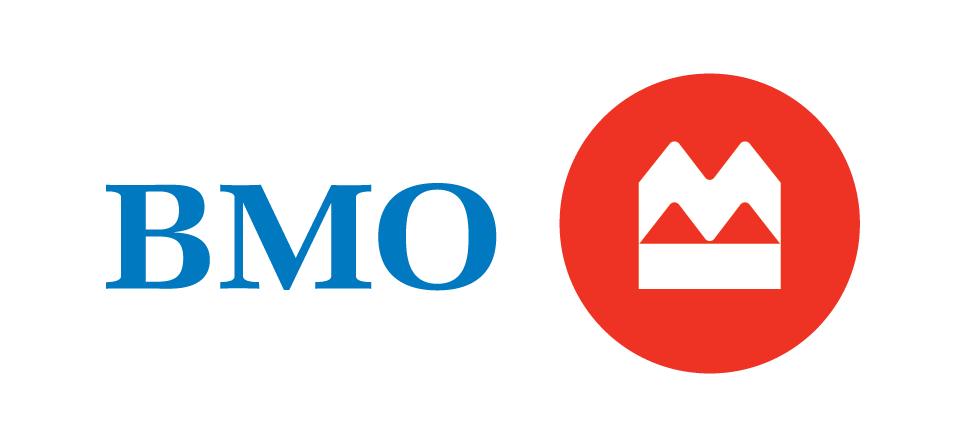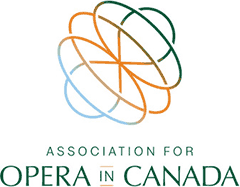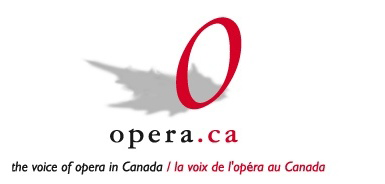Nov 17, 2025
POLITICAL THRILLER – TOSCA – OPENS MANITOBA OPERA’S 2025/26 SEASON November 22, 26, 28
Manitoba Opera’s (MO) 53rd season opens with the political thriller, Tosca, one of the greatest operas ever written November 22, 26, and 28, at the Centennial Concert Hall. Last performed by the company in 2010, Puccini’s Tosca is electrifying and packed with love, jealousy, and betrayal. With some of the most breathtaking music ever written, this opera grips you from the very first note and doesn’t let you go.
For tickets, call 204-944-8824, go online at mbopera.ca, or in person at the MO Box Office, lower level, Centennial Concert Hall, 555 Main St. (9:30 am – 4:30 pm, Monday to Friday). Seniors, students, and youth discounts are available.
THE STORY
Music by Giacomo Puccini Libretto by Luigi Illica and Giuseppe Giacosa
Based on Victorien Sardou’s drama La Tosca
Heart-pounding drama, intense passion, and soaring melodies are a killer combination in this fateful day in the life of the diva Tosca.
In revolutionary Rome, the fiery, famous singer lives for art and love but finds herself in a life-and-death struggle when her lover, the painter Cavaradossi, is caught trying to protect a freedom fighter. Scarpia, the corrupt chief of police, will stop at nothing to satisfy his lust for her. In this game of deadly political intrigue will Tosca submit to Scarpia’s desires or see her lover die? Can Scarpia’s evil reach from beyond the grave?
This captivating classic features some of Puccini’s best: “Vissi d’arte,” the opera’s most famous aria in which Tosca sings that she’s always lived her life for art and love; Cavaradossi’s “Recondita armonia”; Scarpia’s “Te Deum,” sung with self-satisfied villainy and madness; and “E lucevan le stelle,” Cavaradossi’s farewell to Tosca.
Sung in Italian with projected English translations.
THE ARTISTS
Making her Manitoba Opera debut and singing for the first time in Canada, is the phenomenal soprano Marina Costa-Jackson as Tosca (her sister, Ginger, performed with MO in 2024 as the fiery Carmen). Critics have lauded her portrayal, noting her “molten intensity” and describing her as a “splendid Tosca” (Bachtrack).
Tenor David Pomeroy, last seen with MO as Don José in 2024’s Carmen, returns as the heroic artist Cavaradossi. Celebrated for his compelling performances, Pomeroy’s voice has been described as “consistently full yet controlled, effortlessly soaring above the orchestra without a hint of strain.”
Baritone Gregory Dahl, renowned for his formidable portrayals, returns to his hometown to deliver a chilling Scarpia. His performances have been praised for their intensity and depth, with critics highlighting his “splendidly oily and corrupt” characterizations.
Directed by Anna Theodosakis, who made her MO debut with last season’s La Bohème, the cast will also feature David Watson as Angelotti, Peter McGillivray in the roles of a sacristan and a jailer, and James McLennan as Spoletta. The Manitoba Opera Chorus, a Children’s Chorus, and the Winnipeg Symphony Orchestra will be under the direction of Maestro Tyrone Paterson.
Lighting design is by Larry Isacoff. Scenery, props, and costumes: Seattle Opera. Additional costumes: Harlequin Costume & Dance.
Cast subject to change.
View Press ReleaseOct 30, 2025
Brent Phillips joins the MO Admin Team
Manitoba Opera is pleased to welcome Brent Phillips, a long-time arts marketer and manager in Winnipeg’s arts community, to our administrative team. Brent joined Manitoba Opera as the Prairie Projects Arts Initiative (PPAI) Project & Box Office Manager in September.
Brent will oversee the implementation of some new initiatives tied to the Prairie Performing Arts Initiative (PPAI), a transformative strategy supported by PrairiesCan funding. Brent’s role focuses on managing the integration of some new technologies in box office and marketing operations, including working on developing a refreshed website integrated with our ticketing system, and enhancing audience development strategies.
Brent attended the University of Manitoba before discovering the Creative Communications program at Red River College, which helped launch his career. He has held marketing director roles at the Royal Aviation Museum of Western Canada, Winnipeg Symphony Orchestra, and Royal Manitoba Theatre Centre. After graduating from “Cre Comm,” he also spent two summers working on a contract basis for Jazz Winnipeg.
“As a lifelong Winnipegger, I’ve always considered myself an ambassador for the city and a passionate supporter of the arts community,” says Brent when asked what drew him to Manitoba Opera.
“I’m excited to be part of an organization that is an integral part of our cultural fabric and brings the powerful stories, voices, and music of opera to life for audiences.”
As he’s always considered himself both left brain and right brain, the PPAI projects really piqued his interest.
“This role provides the opportunity to combine both my creative and analytical sides and work on some exciting projects to modernize the technology we use while strengthening our relationships with patrons and donors.”
As Brent is an avid music fan, outside of work you may find him in a local store searching for new vinyl to add to his collection or enjoying a meal at a restaurant in our city’s vibrant culinary scene – continuing his long-standing passion for culture in all forms.
View Press ReleaseOct 30, 2025
BRINGING POWERFUL STORIES TO LIFE THANKS TO BMO
As Manitoba Opera looks ahead to another thrilling season, we extend our heartfelt gratitude to our 2025/26 Season Presenting Sponsor, BMO.
BMO has been a dedicated partner since 2017, making it possible for us to present world-class productions that resonate deeply with our audiences and reflect the complexity of our shared human experience. Their support helps ensure that opera is a vibrant, inclusive, and accessible art form for all Manitobans.
We open this season with Puccini’s Tosca. The opera tells a gripping story of love, sacrifice, and political intrigue set in 19th century revolutionary Rome. With its unforgettable score and heart-pounding drama, Tosca is a quintessential operatic experience.
In the spring, we present Mozart’s beloved comedy, The Marriage of Figaro. The ensemble piece is filled with wit, romance, and social commentary that remains relevant today as it was in the 18th century. This production promises laughter, heart, and musical brilliance.
As Manitoba’s only full-time professional opera company, we are proud to serve this province with artistic excellence and integrity. Thank you, BMO, for helping Manitoba Opera bring the transformative power of opera to life.







